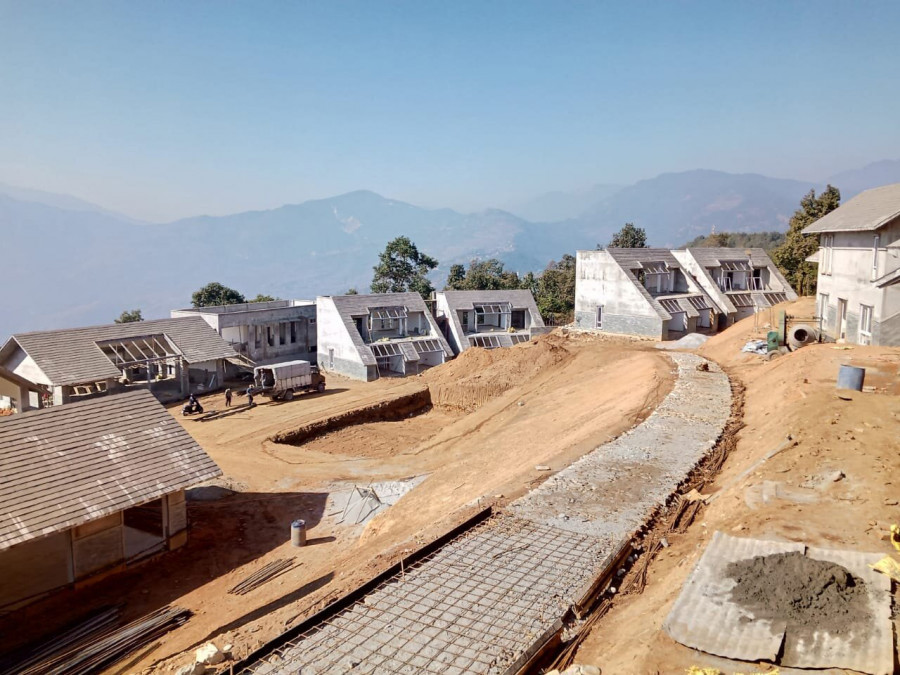Money
Industry department recommends review of minimum threshold on foreign investment
In May 2019, the government had revised the minimum threshold for foreign direct investment from Rs5 million to Rs50 million. However, at that time, the private sector had opposed the move saying that the potential investors might consider the threshold policy a restrictive approach.
Krishana Prasain
Two years after the government had implemented the minimum threshold requirement for foreign direct investment, a government committee has recommended that the minimum threshold be revised sector-wise to improve the country’s foreign investment attractiveness.
The study report on foreign direct investment-2021 published by the Ministry of Industry, Commerce and Supplies said that the investment threshold of Rs50 million in all sectors is not practical.
In May 2019, the government had revised the minimum threshold for foreign direct investment from Rs5 million to Rs50 million. However, at that time, the private sector had opposed the move saying that potential investors might consider the threshold policy restrictive.
After nearly two years, the report prepared by Jiblal Bhusal, director general at the Department of Industry, said that the investment ceiling can be insufficient for investors investing in industry but it’s high for those willing to invest in service sectors like software companies.
Nepali private sector has been saying that small businesses, such as restaurants, coffee shops and hotels need a lower threshold. “We have realised that it would be more practical if the foreign investment limitation is fixed based on sector-wise investment,” said Bhusal.
The Federation of Nepalese Chambers of Commerce and Industries, the country’s apex private sector body, have also been arguing that the investment limitation of Rs50 million is not practical for startup companies.
“Foreign investment commitment is expected to be hit severely by the second-wave of the pandemic. It is hard to meet the target this fiscal year as investment has stopped following the closure of offices,” Bhusal said.
According to Nepal Rastra Bank, the country’s central bank, foreign direct investment flows fell abruptly in 2020 globally as a result of the Covid-19 pandemic. The decline is projected to be more severe than those seen after the Global Financial Crisis in 2009.
While developed economies were initially the most affected, the decline has now spread to developing countries, with inward investment in most countries falling in 2020. The decline in foreign direct investment poses significant challenges for many developing countries like Nepal, as it has become one of the major sources of external financing in recent years.
The recent trend of foreign investment realisation shows that there is a huge gap between approved foreign direct investment and actual foreign direct investment inflows in Nepal.
According to the central bank survey report, between 1995-96 and 2019-20, total actual foreign direct investment inflow stood around 34.1 percent of total foreign investment approval.
According to the Department of Industry report, sector-wise, the service sector has been able to attract most of the foreign investment while the infrastructure sector saw the least.
Industry-wise, foreign investment in the energy industry has attracted most of the investment because of the huge investment in nature.
Similarly, the report said that the number of foreign investment inflows is high in Bagmati province and very low in the Sudurpaschim province.
In the past decade, the highest foreign investment commitment of Rs253.52 billion was approved in the fiscal year 2015-16, right after the earthquake of 2015 that killed nearly 9,000 people and damaged infrastructure worth billions of dollars.
With political stability and positive changes in the economy, foreign investment commitment has been increasing after the fiscal year 2017-18, the report said.
The report also highlighted some problems in the implementation of the Foreign Investment and Transfer of Technology Act, 2019 (FITTA).
For instance, technology transfer, in general, is the transfer of knowledge, skill, technology from one side to another, but as per the existing Act, the consulting service purchase from foreign countries also comes under technology transfer.
There is no clear provision for investors who want to cancel the investment, the report said.
There is no situation for investors to reinvest their earned profit in the company although there is provision for reinvestment, the report said.
Foreign investors can invest 100 percent as per the provision in the Act but other rules of governing bodies do not allow 100 percent foreign investment in many sectors like casino, aviation, telecommunication among others, according to the report.
The most crucial service providers like the Department of Industry, Office of the Company Registrar, Investment Board and the central bank are not digitized and it has been causing hassles for investors as they need to do traditional paperwork which is time consuming, according to the report.
As the FIITA regulation has provisioned providing commercial visas for only two foreign investors, the report has suggested expanding the privilege to at least five people based on the investment.
Although the government had announced a VAT refund in hydropower projects, it has not been implemented, the report said.
As per the existing law, foreign direct investment up to Rs6 billion is approved by the Industry Department, while investment of more than Rs6 billion is approved by the Investment Board Nepal.
Bhusal said that there are many problems that they have identified in the report that need to be sorted out by amending the foreign investment law and regulation to build up investor confidence in Nepal.




 9.7°C Kathmandu
9.7°C Kathmandu















